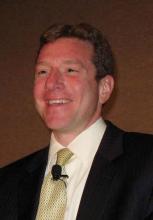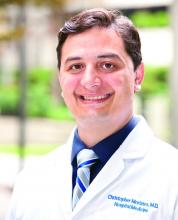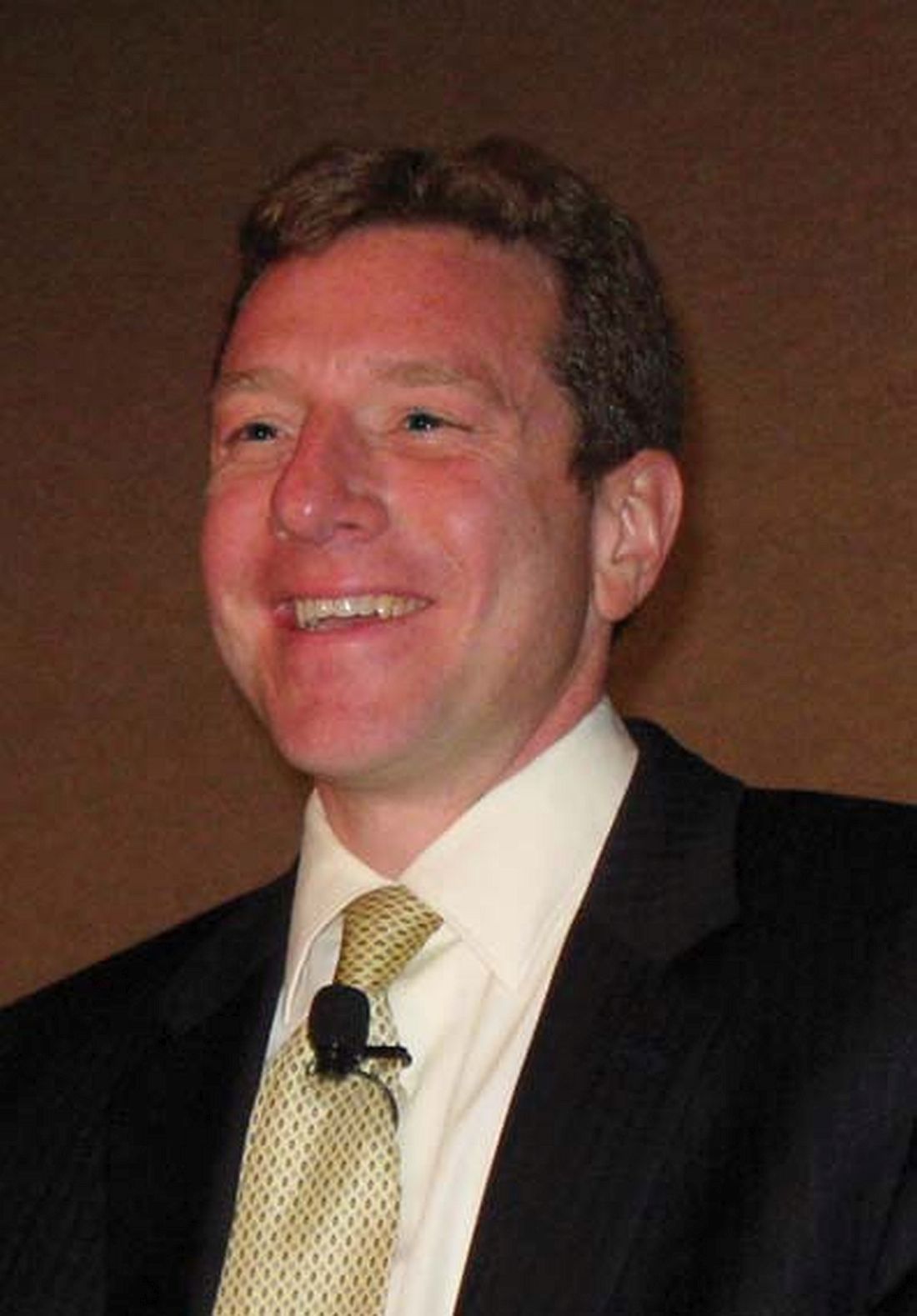User login
If the annual meeting of the Society of Hospital Medicine could be boiled down to a single goal, it might be to give hospitalists the information they need to be the best doctors they can be.
It shouldn’t come as a surprise, then, that research performed by hospitalists on high-value care (HVC) will be featured in an abstract session at this year’s conference.
The “Best of HVC Abstract Submissions” session, scheduled for Tuesday, May 2, 3:05–3:45 p.m., will be part of a day-long track devoted entirely to HVC, a new feature at this year’s annual meeting.
“The panel will give them feedback and ask questions and sort of engage in conversation about it,” Dr. Feldman said. He thinks that featuring these abstracts in a high-profile setting is a good way for hospitalists to learn from one another. “There are so many hospitalists interested in this topic right now and people working in this area and coming up with quality improvement projects around high-value care. It’s nice to know what other folks are doing.”
Dr. Feldman hopes that, if hospitalists find out what is happening at other centers, it will spur even more quality projects.
“We don’t often have the opportunity to share the work that we’ve done and to motivate each other,” he said. “When you hear about the great work that other people are doing, it is invigorating; it’s exciting; it gets you jazzed up about doing the work in your own institution. A lot of this isn’t incredibly sophisticated. It is stuff that can be relatively easily disseminated from one institution to another without having a ton of support. To be able to see the type of work that people do is thrilling for the hospitalists who attend.”
“With the growing recognition of the costs and harms from medical overuse, high-value care has become a national imperative,” he said. “Hospitalists are natural leaders for high-value care, much like we have been for patient safety and quality improvement. Hospitalists have already led the way on developing programs that target areas of overuse in hospitals. Our ‘Best of HVC’ session will highlight many of these promising examples. There will be plenty of opportunities to learn from innovators and take back the best ideas to our own hospitals.”
Organizers said that the HVC track “will guide attendees on how to avoid diagnostic and therapeutic overuse and how to move toward the right care for every hospital medicine patient.” Other sessions in the track will cover “things we do for no reason,” how to use imaging wisely, and tips on overcoming cultures fraught with overuse.
Dr. Feldman said the track is intended to meet the demand of meeting attendees.
“There are lots of hospitalists who are engaging in this type of work in their institutions and systems,” he said. “So, it’s just timely. People are engaged in it and they’re excited about it, so it makes sense that adding a track right now would fulfill the needs of many of the hospitalists who are going to be attending.”
Best of HVC Abstract Submissions
Tuesday, May 2, 3:05–3:45 p.m.
If the annual meeting of the Society of Hospital Medicine could be boiled down to a single goal, it might be to give hospitalists the information they need to be the best doctors they can be.
It shouldn’t come as a surprise, then, that research performed by hospitalists on high-value care (HVC) will be featured in an abstract session at this year’s conference.
The “Best of HVC Abstract Submissions” session, scheduled for Tuesday, May 2, 3:05–3:45 p.m., will be part of a day-long track devoted entirely to HVC, a new feature at this year’s annual meeting.
“The panel will give them feedback and ask questions and sort of engage in conversation about it,” Dr. Feldman said. He thinks that featuring these abstracts in a high-profile setting is a good way for hospitalists to learn from one another. “There are so many hospitalists interested in this topic right now and people working in this area and coming up with quality improvement projects around high-value care. It’s nice to know what other folks are doing.”
Dr. Feldman hopes that, if hospitalists find out what is happening at other centers, it will spur even more quality projects.
“We don’t often have the opportunity to share the work that we’ve done and to motivate each other,” he said. “When you hear about the great work that other people are doing, it is invigorating; it’s exciting; it gets you jazzed up about doing the work in your own institution. A lot of this isn’t incredibly sophisticated. It is stuff that can be relatively easily disseminated from one institution to another without having a ton of support. To be able to see the type of work that people do is thrilling for the hospitalists who attend.”
“With the growing recognition of the costs and harms from medical overuse, high-value care has become a national imperative,” he said. “Hospitalists are natural leaders for high-value care, much like we have been for patient safety and quality improvement. Hospitalists have already led the way on developing programs that target areas of overuse in hospitals. Our ‘Best of HVC’ session will highlight many of these promising examples. There will be plenty of opportunities to learn from innovators and take back the best ideas to our own hospitals.”
Organizers said that the HVC track “will guide attendees on how to avoid diagnostic and therapeutic overuse and how to move toward the right care for every hospital medicine patient.” Other sessions in the track will cover “things we do for no reason,” how to use imaging wisely, and tips on overcoming cultures fraught with overuse.
Dr. Feldman said the track is intended to meet the demand of meeting attendees.
“There are lots of hospitalists who are engaging in this type of work in their institutions and systems,” he said. “So, it’s just timely. People are engaged in it and they’re excited about it, so it makes sense that adding a track right now would fulfill the needs of many of the hospitalists who are going to be attending.”
Best of HVC Abstract Submissions
Tuesday, May 2, 3:05–3:45 p.m.
If the annual meeting of the Society of Hospital Medicine could be boiled down to a single goal, it might be to give hospitalists the information they need to be the best doctors they can be.
It shouldn’t come as a surprise, then, that research performed by hospitalists on high-value care (HVC) will be featured in an abstract session at this year’s conference.
The “Best of HVC Abstract Submissions” session, scheduled for Tuesday, May 2, 3:05–3:45 p.m., will be part of a day-long track devoted entirely to HVC, a new feature at this year’s annual meeting.
“The panel will give them feedback and ask questions and sort of engage in conversation about it,” Dr. Feldman said. He thinks that featuring these abstracts in a high-profile setting is a good way for hospitalists to learn from one another. “There are so many hospitalists interested in this topic right now and people working in this area and coming up with quality improvement projects around high-value care. It’s nice to know what other folks are doing.”
Dr. Feldman hopes that, if hospitalists find out what is happening at other centers, it will spur even more quality projects.
“We don’t often have the opportunity to share the work that we’ve done and to motivate each other,” he said. “When you hear about the great work that other people are doing, it is invigorating; it’s exciting; it gets you jazzed up about doing the work in your own institution. A lot of this isn’t incredibly sophisticated. It is stuff that can be relatively easily disseminated from one institution to another without having a ton of support. To be able to see the type of work that people do is thrilling for the hospitalists who attend.”
“With the growing recognition of the costs and harms from medical overuse, high-value care has become a national imperative,” he said. “Hospitalists are natural leaders for high-value care, much like we have been for patient safety and quality improvement. Hospitalists have already led the way on developing programs that target areas of overuse in hospitals. Our ‘Best of HVC’ session will highlight many of these promising examples. There will be plenty of opportunities to learn from innovators and take back the best ideas to our own hospitals.”
Organizers said that the HVC track “will guide attendees on how to avoid diagnostic and therapeutic overuse and how to move toward the right care for every hospital medicine patient.” Other sessions in the track will cover “things we do for no reason,” how to use imaging wisely, and tips on overcoming cultures fraught with overuse.
Dr. Feldman said the track is intended to meet the demand of meeting attendees.
“There are lots of hospitalists who are engaging in this type of work in their institutions and systems,” he said. “So, it’s just timely. People are engaged in it and they’re excited about it, so it makes sense that adding a track right now would fulfill the needs of many of the hospitalists who are going to be attending.”
Best of HVC Abstract Submissions
Tuesday, May 2, 3:05–3:45 p.m.


